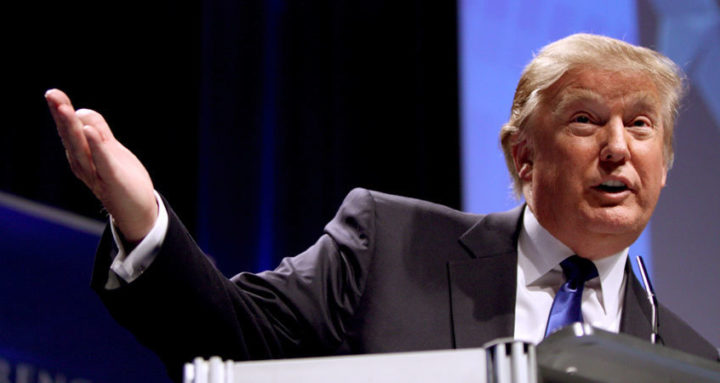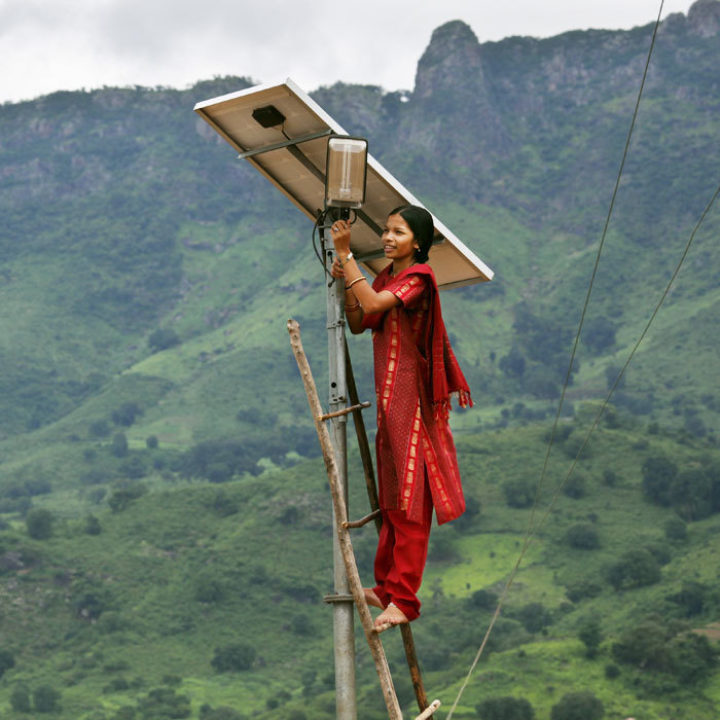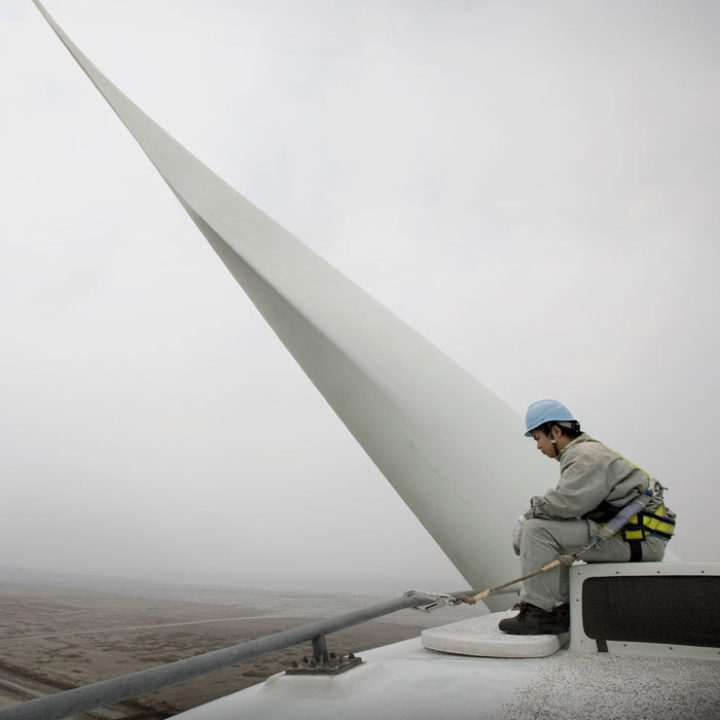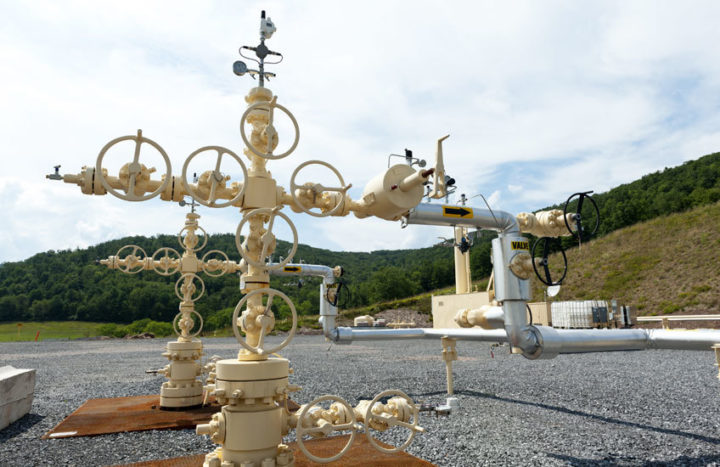‘Donald So What?’ UN trumps Trump
At the UN climate summit, countries line up four square behind emission cuts and clean energy
By Richard Black
Share
Last updated:

From 2,000 miles north of Marrakech, where this year’s United Nations climate convention summit has just concluded, it obviously looked as though the entire UN climate process was skidding into a ditch of despond and decline.
It looked that way to Andrew Lilico, Executive Director of Europe Economics and an architect of George Osborne’s austerity theory, who wrote on the ConservativeHome website that ‘the Paris Accord is done and global climate change action altogether is pretty much finished for the foreseeable future’.
ConservativeHome’s Executive Editor Mark Wallace, from the same London vantage point, made complementary points. Theresa May was already less ‘green’ than David Cameron even before coming to office, he opined, presumably having declined to find out that she has historically spoken warmly of both tackling climate change and of renewable energy – and ‘international circumstances look likely to accentuate that difference’, giving the Prime Minister ‘greater leeway to act on green taxes and policies to give consumers a break’.
Sometimes distance aids comprehension. But not in this case.

For one thing, no-one has any idea what a Donald Trump presidency will actually do.
As Barack Obama observed this week, things look very different when you’re in office; and as we already know, neither the campaign rhetoric on the Mexico wall nor the Affordable Care Act is to be honoured in full.
Having spent the week at the UN summit in Marrakech, I can tell Mr Wallace and Dr Lilico (and anyone else, not being picky on these things) that the UN Paris Agreement is definitely not quaking at the knees.
Au contraire: minister after minister went out of their way to emphasise how strongly they back it. Exhibit A, the ‘Marrakech Proclamation’ [pdf], signed by every country here.
‘We welcome the Paris Agreement (and) its rapid entry into force… and we affirm our commitment to its full implementation,’ it reads.
‘This year, we have seen extraordinary momentum on climate change worldwide… This momentum is irreversible…’
Does that sound like an international climate change agreement crumbling to you?
Down to zero
Let me chuck in a couple more things that happened this week in Marrakech.
Firstly, 22 nations declared they are working on long-term strategies to radically cut their greenhouse gas emissions by 2050. Four have already submitted their strategies to the UN – and while the US doing so looked like John Kerry giving one last snubbed nose to Donald Trump, it’s worth noting that two of the others are those that sandwich the US, Canada and Mexico.
The fourth, Germany, is planning to phase out greenhouse gas emissions pretty much entirely by 2050 – and having been labelled something of a hypocrite recently for allowing coal burning to rise, the plan is impressive in its detail.
One of the 22 is the UK, which already has a long-term strategy of sorts under the Climate Change Act

The second notable happening was that 48 nations vowed [pdf] to produce all of their energy in future from renewable sources, and if possible to do that by 2050.
These include some of the world’s poorest countries – Haiti, Niger, Sudan – and some, such as the Pacific Island states of Samoa and the Marshall Islands, will meet the 100% renewables goal long before mid-century.
Oh – and then there’s China. I don’t know whether it registered in London, but this nation invested more than $100bn [pdf] in renewable energy last year alone. Apparently China can afford to build renewables when Britain (according to the ConservativeHome team) can’t, despite having a per-capita GDP five times that of China.
The growth of non-fossil fuel energy sources runs through China’s national development plans like the word ‘Blackpool’ through a stick of rock; and there’s as much chance of China turning away from the UN climate convention as Ed Balls limboing under a park bench.
Odd though it might appear to those brought up on the special relationship, the Marshall Plan and the Chicago School, the US isn’t the only nation in the world that matters to Britain. Theresa May’s first visit outside the UK wasn’t to Washington but to Delhi, and the Memorandum of Understanding she signed with President Narendra Modi included pledges to co-operate on renewable and nuclear energy. India last year launched an International Solar Alliance that now includes more than 100 nations – the UK is going to join.
China’s Vice Foreign Minister Liu Zhenmin said this week that his government will take countries’ stances on climate change and the low-carbon economy into account when negotiating trade deals – deals of the kind Britain will need, presumably, as it navigates the route to those sunlit uplands.
Cold on coal
Even in Trump’s America, the clock is not about to go backwards on energy. Simply put, the US coal industry that the President-elect wants to revive isn’t investible. (Neither is the nuclear industry, but that’s different story.)
Basically, US investors are putting money into wind, solar and gas. The Donald can attempt to subsidise coal back to life if he wants; but he’ll be fought all the way in the courts, many states are not going to abandon their own clean energy plans, and he may only be in power for four years, less than it takes to build a new coal-fired power station. That’s not enough to persuade investors to put their money into something they’re currently shunning.

Sometimes distance aids comprehension. But sometimes to comprehend you have to get out and talk to people – you know, the ones that actually understand the stuff you’re writing about. The ones who were in Marrakech this week.
And, in terms of the UK energy system, that includes the ones who understand that investing in energy efficiency is an ideal policy for the ‘just-managing classes’, that past investment in renewables is exerting a downwards force on energy bills, and that onshore wind and solar are now just about the cheapest sources of power for Britain.
Someone who does understand all of this and the weight of scientific evidence on climate change, as he showed during his speech a couple of weeks ago, is Greg Clark – the MP selected by the supposedly non-green Theresa May to lead her important new Department of Business, Energy and Industrial Strategy.
Donald Trump’s election isn’t irrelevant to climate change. The least it will do is to reduce energy investors’ confidence in the US – and in doing so make energy more expensive for Americans, as shilly-shallying by David Cameron and George Osborne did in Britain. But there’s not a shred of evidence it will have any impact outside the US – which makes it really hard to construct an informed argument that it should perturb the UK’s position one iota.
Not a case of ‘Donald Who?’ But on climate change, as far as 194 nations were concerned this week, definitely a case of ‘Donald So What’?
Share